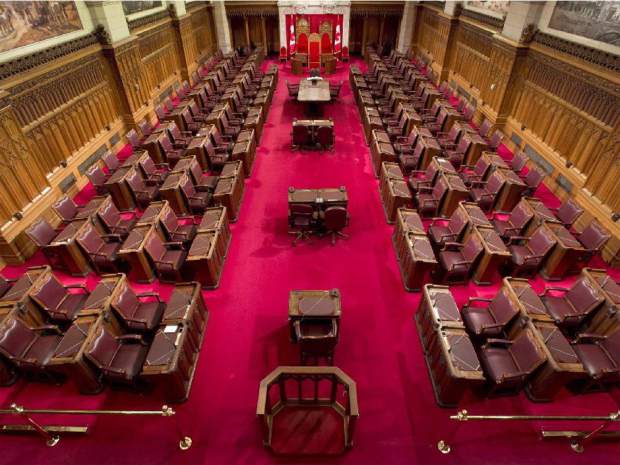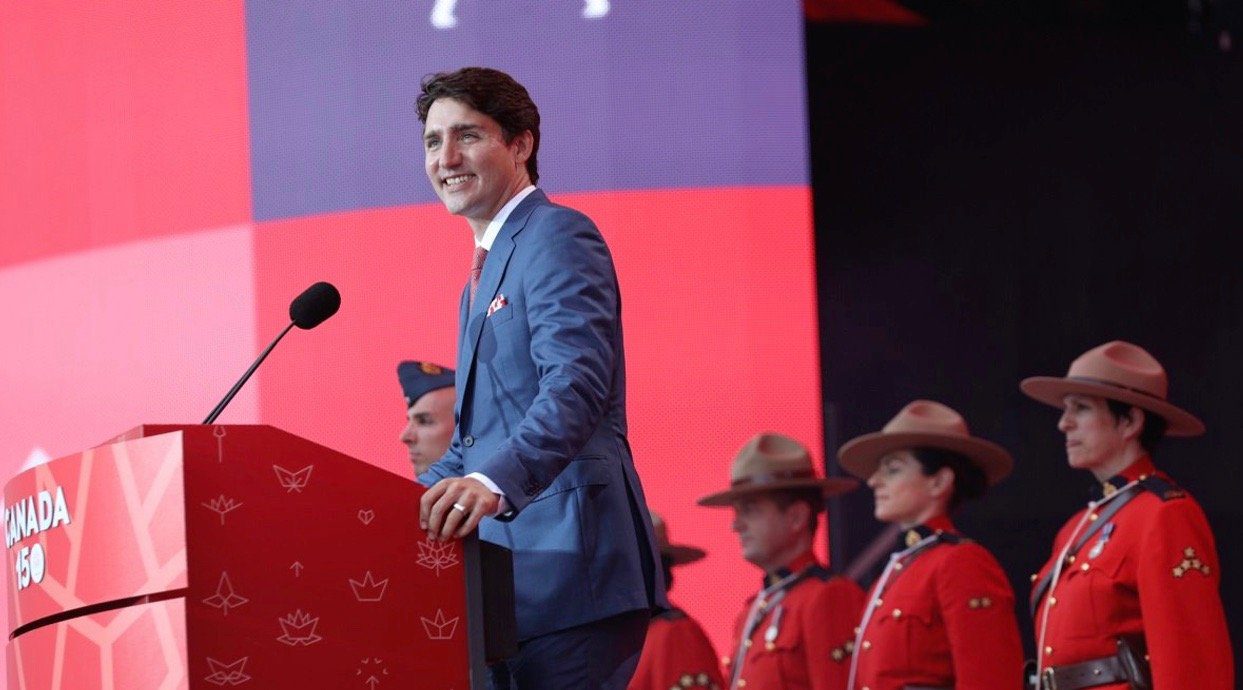In the Globe and Mail this week, former Conservative Senator Hugh Segal praises the new "independent" Senate and worries about a future where it returns to its old partisan self. While he makes a few salient points about the partisan nature of the body when he served in it, he also forgets a few of the reasons why there is still a need for some partisan senators, and he has an overly rose-coloured view of how things are operating right now, because not everything is running as smoothly as he seems to think.
For starters, we can't deny that there were problems under the Harper era, but this wasn't simply an issue of a partisan Senate per se. We have to place things in context the number of Conservative senators had started dwindling dramatically as Mulroney-era appointees started aging out, and Paul Martin made some mischief when he appointed Progressive Conservative senators to spite the recently-created Conservative Party of Canada under Stephen Harper. Some of those PC senators eventually joined the Conservative caucus, but their numbers were still perilously low for the work that needed to be done in the Senate. When Harper formed government, he instituted a policy of not appointing Senators that had not been "elected" in a provincial process as Alberta had done well, except for Michael Fortier, who was appointed to Cabinet but given a Senate seat because they didn't have a seat in the Montreal area to put into Cabinet.
While Harper remained obstinate, only filling Alberta seats, the Conservative ranks in the Senate continued to dwindle, which created problems for the workload of those few remaining senators. And then the 2008 prorogation crisis happened, and the threat of a possible coalition government who would fill those vacant seats (the notion of Elizabeth May being appointed to the Senate was frequently bandied about) finally forced Harper's hand. He made the 18 appointments to fill those seats in one fell swoop (without proper vetting, as it turned out, and we can recall some of the problems with senators from that class).
Why this is important to remember when it comes to Segal's recollection of the bad old partisan years is because those 18 came in being told that they were to be whipped and were treated like backbench MPs. There weren't enough existing Conservative senators who were able to mentor them in how the Senate should operate, and more importantly, mentor them in the degree of institutional independence that they were able to exert. And this is why we had a class of senators who came in with such partisan vigour, and who were more than willing to do the bidding of the PMO. This is important context that we shouldn't let Segal's trip down memory lane blur out.
When Justin Trudeau made the unilateral decision to kick his senators out of caucus, what he inadvertently did was remove the institutional memory from inside the caucus room, which is something that Segal omits from his particular recollections of the bad old partisan days as well. This can't be underestimated, because the Senate is Parliament's corporate memory, and that is not only for the institution as a whole, but within the party caucuses themselves. Canada's House of Commons has a high turnover rate in comparable Western democracies, and this makes the need for institutional memory all the more important especially since a PM without that memory in the caucus room can exert control he shouldn't because he doesn't have senators in the room telling him that he's overstepping his bounds.
Segal praises the number of amendments that were accepted to bills in the current parliament, and again, this is becoming a bit of a tired canard. The reason that these amendments are being accepted now, as opposed to during the Harper era, is quite simply that Trudeau has signalled his being open to them, where Harper did not. And we can't be too quick to think that Trudeau has been open to all amendments, because he hasn't. The vast majority of amendments have come from the government to the sponsor of bills as technical fixes, and only in rare occasions have substantive amendments been accepted. That's more context that we can't ignore in an attempt to be feel-good about how the current Senate is operating. We also can't ignore that some of those amendments could have been made sooner if senators suggested them in the caucus room with their MP colleagues.
Segal's praise extends to the "new operating processes in the Senate," which he proffers to Government Leader in the Senate err, "government representative" Senator Peter Harder, and co-ordinating team of the Independent Senators Group, Senators Yuen Pau Woo and Raymonde Saint-Germain. And this is where Segal really starts to lose me. Why? Because it hasn't actually been running smoothly, despite the carefully crafted appearances to the contrary. Harder refuses to do his job of negotiating with the various caucuses in the Senate because he sees horse-trading as "partisan" rather than as part of his job. His staff was almost entirely inexperienced with the Senate because Harder viewed anyone with experienced as being tainted by partisanship. And this inability to do the job of negotiating has led to a lot of the problems with bills not moving as quickly through the Senate as possible (not to mention the fact that it has been rising early at the end of each session with numerous bills still on the Order Paper when they could have been passed if they stayed the extra week or two to do the work). And rather than looking to do something about doing his job, he instead wants to fob it off onto a business committee that would time allocate all Senate business.
While I understand Segal's desire to see the changes to the Senate carry forward, we have to keep what we think we're seeing in perspective. There are things that are working with the "new" Senate and things that aren't, and it's reductive to say that it's simply the sublimated partisanship. In fact, the Senate has proven to work best when there the three caucus groups in relatively equal number, but that balance is starting to slide away, and we could soon find ourselves careening for the worse as new senators, with a fresh sense of entitlement, start looking to change the rules. There is a lot of history and context that needs to be front of mind, and we can't simply see things with rose-coloured glasses.







